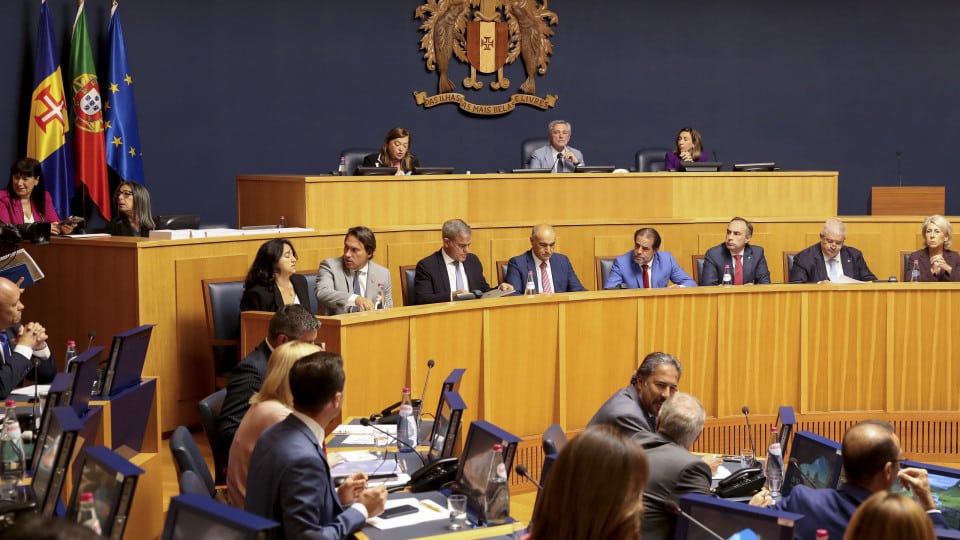A second proposal for Madeira’s Government Program will be discussed and voted on today in the form of a motion of confidence in the regional assembly, without “categorical guarantees” of approval, an unprecedented situation in the history of regional parliamentarianism.
On June 19, the president of the Madeiran executive, the Social Democrat Miguel Albuquerque, withdrew the proposal from discussion in plenary due to an announced lead: PS, JPP and Chega, who make up 24 deputies out of 47 seats, which means an absolute majority, said they would vote against the document.
The Program was being discussed for the second day and was expected to be voted on the following day.
The Regional Government then invited all the parties with parliamentary seats to meetings with a view to agreeing on measures, but PS and JPP – who after the May elections unsuccessfully presented a proposal to form a government – rejected the invitation.
The meetings took place last week and at the beginning of this week, with IL’s sole MP, Nuno Morna, announcing that he would abstain after seeing some of the measures advocated by his party included.
The PAN MP, Mónica Freitas, also expressed her willingness to support the document because it also included suggestions from this political force, but reserved her vote for the vote.
For its part, the CDS-PP, which signed a parliamentary agreement with the PSD after the elections (still not enough for an absolute majority), will vote in favor.
The only doubt is the position of the Chega parliamentary group, led by Miguel Castro, who met three times with the Regional Government and insisted on the removal of Miguel Albuquerque in order to make the Government Program viable, but even ‘opened the door’ and, after the last meeting on Monday, refused to make any statements.
According to Miguel Albuquerque, the new proposal submitted to the Madeira Legislative Assembly on Tuesday includes 19 measures from the four parties that agreed to sit down for talks. However, the chief executive admitted that there was no “absolute certainty” that it would be approved and said he trusted in the “responsibility” of the parties.
Albuquerque also guaranteed not to withdraw the proposal, which will be discussed until the vote.
The assembly’s Conference of Representatives met on Tuesday to decide on the rules of procedure for the plenary session, scheduling the discussion for the morning, which begins with a 15-minute speech by the president of the regional government.
This will be followed by a period of requests for clarification, which can be addressed either to the president of the executive or to the regional secretaries, and in the afternoon the closing session and vote will take place.
According to the president of parliament, Christian Democrat José Manuel Rodrigues, the budget for the Autonomous Region of Madeira for 2024 could be discussed and voted on later this month.
In the early regional elections on May 26, the PSD elected 19 deputies, five mandates away from achieving an absolute majority, the PS got 11, the JPP nine, Chega four and the CDS-PP two, while IL and PAN elected one deputy each.
The vote took place eight months after the regional legislative elections on September 24, 2023, after the President of the Republic, Marcelo Rebelo de Sousa, dissolved the Madeiran parliament following the political crisis triggered in January, when Albuquerque was indicted in a case involving alleged corruption.
The Social Democrat ended up resigning at the beginning of February and the executive was then in administration. A budget for 2024 was never voted on.
The PSD has led the archipelago’s executive since the first democratic elections. In 2019, in his second term, Albuquerque made a post-election agreement with the CDS to maintain the absolute majority that the Social Democrats had always managed to achieve on their own.
In 2023, the two parties ran in coalition, but in order to secure 24 MPs, the PSD had to reach a parliamentary agreement with the PAN, which was torn up by the single MP in the crisis at the beginning of this year.
CJEU denies Portugal’s appeal over breach of competition rules in Madeira









